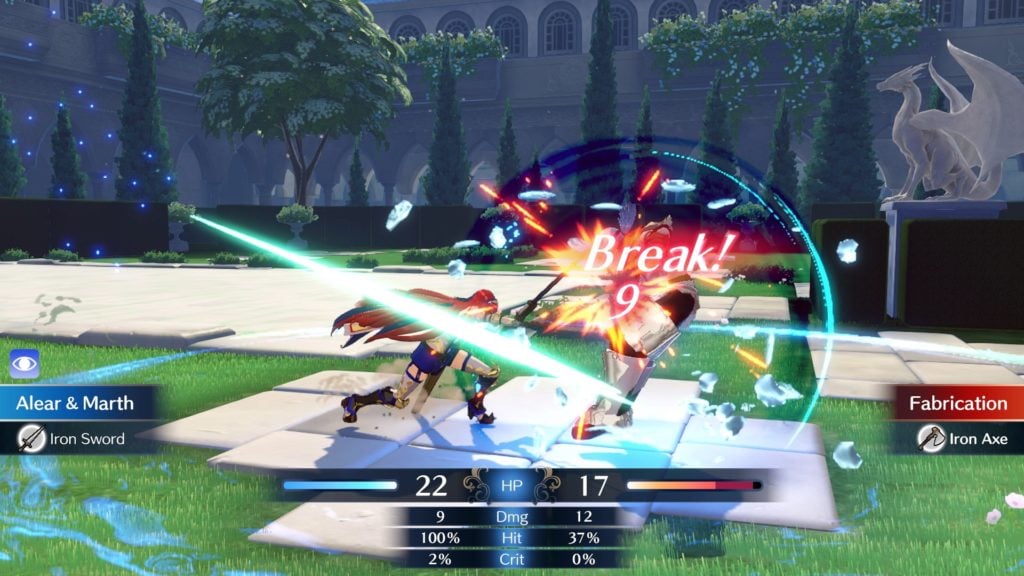Fire Emblem is all about tactics and strategy. The Weapon Triangle, first introduced in Fire Emblem: Genealogy of the Holy War and appeared with some tweaks in successive titles like Fire Emblem Fates, plays into it perfectly.
It works like rock-paper-scissors, except it’s made up of Swords, Axes, and Lances. Each weapon is strong against one but weak against another. Knowing how it works can make a world of difference on the battlefield.
The Weapon Triangle is back in Fire Emblem Engage. It works in the same way but has a new and improved formula.
Let’s take a look at how the triangle works and how each weapon fares.

Fire Emblem Engage Weapon Triangle Explained
At its core, Fire Emblem Engage’s Weapon Triangle is not all that different from the classic one. Swords beat axes, axes beat lances, and lances beat swords. There are, however, some extra additions.
Arts, Bows, Knives, and Magical Tomes also exist within the Weapon Triangle. Bows and Magical Tomes have the advantage of being ranged weapons, while Arts, with are basically gauntlets, are strong against them.
Here’s a list of them all:
- Arts: Arts are strong against Bows, Tomes, and Knives.
- Axes: Axes are strong against Lances but weak against Swords.
- Bows: Strong against Flying Units but weak against Arts.
- Lances: Lances are strong against Swords but weak against Axes.
- Swords: Swords are strong against Axes but weak against Lances.
Fire Emblem Engage also added a ‘Break’ mechanic. The way it works is simple. When striking an enemy unit with a weapon that is strong against theirs, it makes them unable to counterattack until their next turn.
Bows, Knives, and Magical Tomes cannot Break enemies. They can, however, be broken by Arts.












Published: Jan 23, 2023 10:33 pm